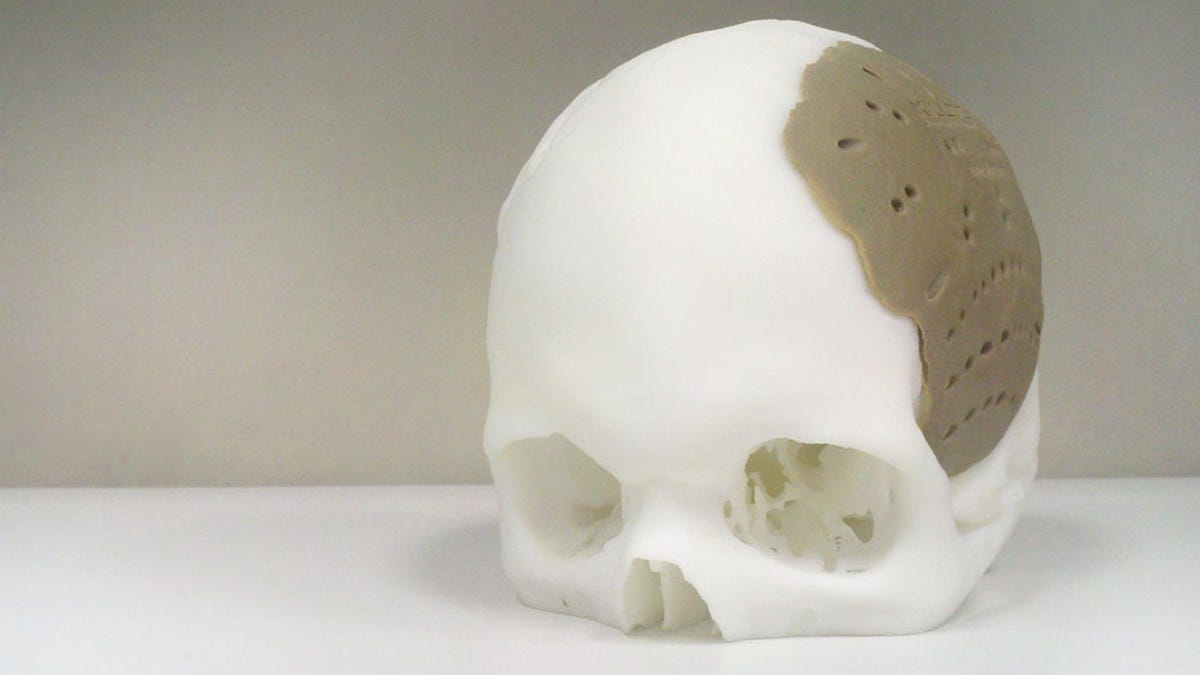3D-printed implant replaces 75 percent of patient's skull
In a big move for 3D-printed medical implants, a patient received a custom-made skull implant.

Doctors have already replaced a patient's jaw with a 3D-printed titanium implant, so why not part of a skull? Earlier this week, 75 percent of an American patient's skull was surgically replaced with a custom-made implant produced by a 3D printer from Oxford Performance Materials.
The full name of the implant is the OsteoFab Patient Specific Cranial Device. The implant is made from PEKK biomedical polymer and printed using CAD files developed to fit each person. The world of skulls is not one-size-fits-all. Much like an expensive pair of bespoke shoes, these skull implants are unique to the individual.
"It is our firm belief that the combination of PEKK and Additive Manufacturing (our OsteoFab technology) is a highly transformative and disruptive technology platform that will substantially impact all sectors of the orthopedic industry," said Scott DeFelice, President and CEO of Oxford Performance Materials.
The company is starting with skulls, but plans to move through the body, creating more implant options. The skull success could be just a precursor to other bones like femurs, knee caps, and hips.
The PEKK polymer has the big advantage of being biomechanically similar to bone. The skull implant was just approved by the FDA last month.
The patient's name and type of injury hasn't been released, but the implant signals a big step forward for the use of 3D-printed materials in medical situations.
(Via Reddit)

